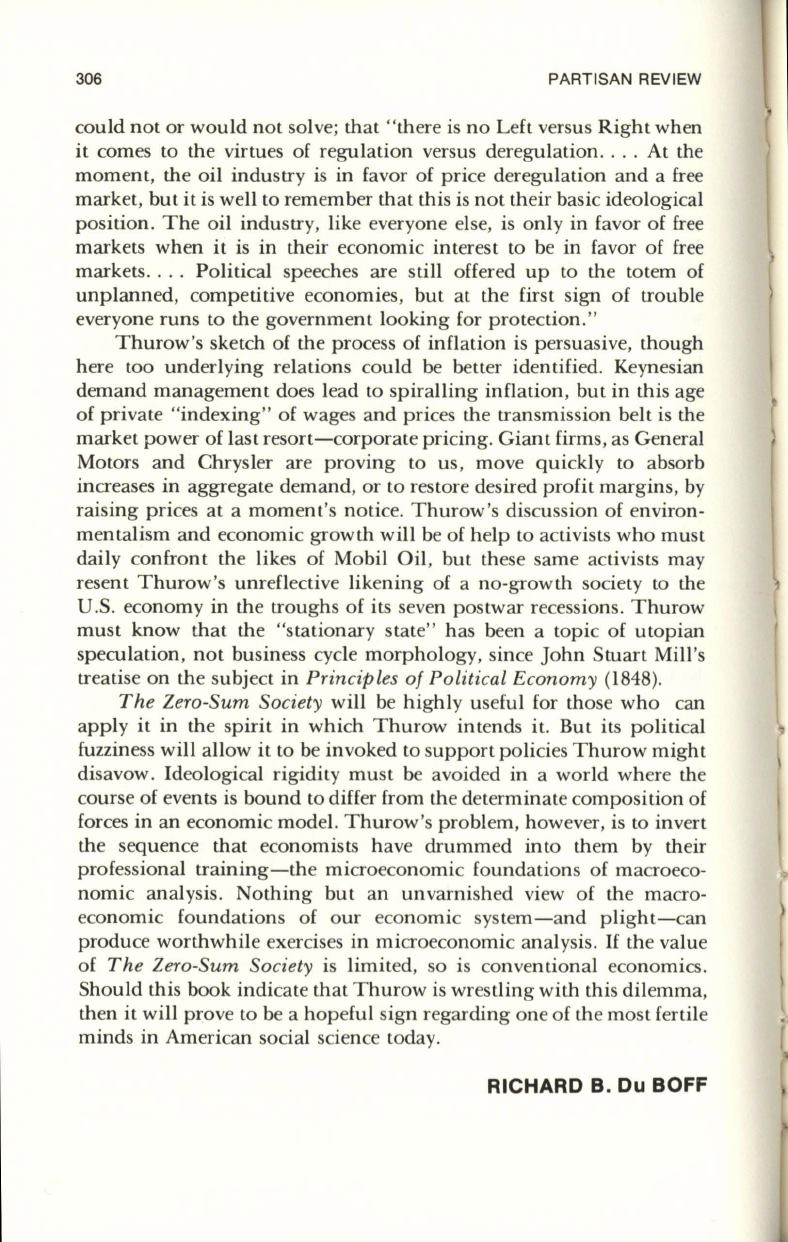
306
PARTISAN REVIEW
could not or would not solve; that "there is no Left versus Right when
it comes to the virtues of regulation versus deregulation.... At the
moment, the oil industry is in favor of price deregulation and a free
market, but it is well to remember that this is not their basic ideological
position. The oil industry, like everyone else, is only in favor of free
markets when it is in their economic interest to be in favor of free
markets.. .. Political speeches are still offered up to the totem of
unplanned, competitive economies, but at the first sign of trouble
everyone runs to the government looking for protection. "
Thurow's sketch of the process of inflation is persuasive, though
here too underlying relations could
be
better identified. Keynesian
demand management does lead to spiralling inflation, but in this age
of private "indexing" of wages and prices the transmission belt is the
market power of last resort-corporate pricing. Giant firms, as General
Motors and Chrysler are proving to us, move quickly to absorb
increases in aggregate demand, or to restore desired profit margins, by
raising prices at a moment's notice. Thurow's discussion of environ–
mentalism and economic growth will be of help to activists who must
daily confront the likes of Mobil Oil, but these same activists may
resent Thurow's unreflective likening of a no-growth society to the
U.S. economy in the troughs of its seven postwar recessions. Thurow
must know that the "stationary state" has been a topic of utopian
speculation, not business cycle morphology, since John Stuart Mill 's
treatise on the subject in
Principles of Political Economy (1848).
The Zero-Sum Society
will be highly useful for those who can
apply it in the spirit in which Thurow intends it. But its political
fuzziness will allow it to be invoked to support policies Thurow might
disavow. Ideological rigidity must be avoided in a world where the
course of events is bound to differ from the determinate composition of
forces in an economic model. Thurow's problem, however, is to invert
the sequence that economists have drummed into them by their
professional training-the microeconomic foundations of macroeco–
nomic analysis. Nothing but an unvarnished view of the macro–
economic foundations of our economic system-and plight-can
produce worthwhile exercises in microeconomic analysis.
If
the value
of
The Zero-Sum Society
is limited, so is conventional economics.
Should this book indicate that Thurow is wrestling with this dilemma,
then it will prove to be a hopeful sign regarding one of the most fertile
minds in American social science today.
RICHARD B. Du BOFF


